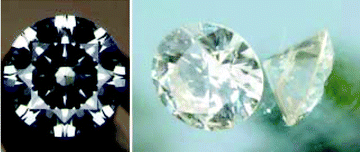Probing hydrogen-rich molecular systems at high pressures and temperatures
Abstract
Information on the behavior of hydrogen-containing simple molecular systems at high pressures and temperatures is central to many problems in chemistry and allied sciences. The combination of increasing pressure and temperature causes a redistribution of the electronic density, and the resulting alterations in interatomic interactions give rise to changes in macroscopic properties. Experimental studies of hydrogen-rich systems under extreme conditions have advanced considerably in recent years as a result of improvements in diamond anvil cell technology in combination with resistive- and laser-heating techniques. These experimental methods are combined with spectroscopic and diffraction techniques, and the results interpreted with the aid of molecular simulations. In this tutorial review we discuss recent findings in hydrogen,

- This article is part of the themed collection: High Pressure Science

 Please wait while we load your content...
Please wait while we load your content...